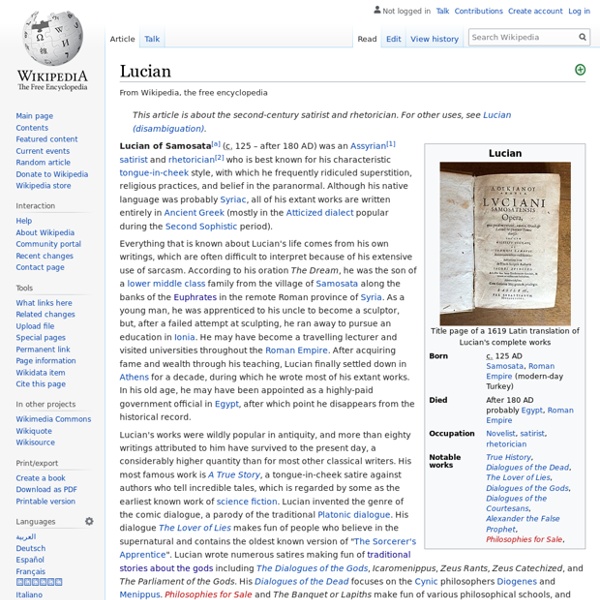Aeschylus
ancient Athenian tragic playwright Aeschylus (,[1] ;[2] Greek: Αἰσχύλος Aiskhylos, pronounced [ai̯s.kʰý.los]; c. 525/524 – c. 456/455 BC) was an ancient Greek tragedian. He is often described as the father of tragedy.[3][4] Academics' knowledge of the genre begins with his work,[5] and understanding of earlier tragedies is largely based on inferences from his surviving plays.[6] According to Aristotle, he expanded the number of characters in the theatre and allowed conflict among them; characters previously had interacted only with the chorus.
Danaïdes
mythical characters Mythology[edit] Danaus did not want his daughters to go ahead with the marriages and he fled with them in the first boat to Argos, which is located in Greece near the ancient city of Mycenae. Danaus agreed to the marriage of his daughters only after Aegyptus came to Argos with his fifty sons in order to protect the local population, the Argives, from any battles. The daughters were ordered by their father to kill their husbands on the first night of their weddings and this they all did with the exception of one, Hypermnestra, who spared her husband Lynceus because he respected her desire to remain a virgin.
A. C. Bradley
20th-century English literary scholar Andrew Cecil Bradley in 1891 Andrew Cecil Bradley, FBA (26 March 1851 – 2 September 1935) was an English literary scholar,[1] best remembered for his work on Shakespeare. Life[edit] Work[edit]
Keroessa
Story[edit] According to the historian Hesychius of Miletus,[3] as Io, changed into a heifer and being chased by a gadfly on behalf of the jealous Hera, was passing through Thrace, she gave birth to a girl, Keroessa, on the banks of the Golden Horn, by the altar of the nymph Semestra. Keroessa was reared by Semestra and grew up surpassing other local maidens in beauty. She had intercourse with Poseidon and in due course gave birth to a son, whom she named Byzas.
The Pilgrim's Progress
The Pilgrim's Progress from This World, to That Which Is to Come is a 1678 Christian allegory written by John Bunyan. It is regarded as one of the most significant works of religious, theological fiction in English literature.[1][2][3][4] It has been translated into more than 200 languages, and has never been out of print.[5][6] It has also been cited as the first novel written in English.[7] Bunyan began his work while in the Bedfordshire county prison for violations of the Conventicle Act of 1664, which prohibited the holding of religious services outside the auspices of the established Church of England. The English text comprises 108,260 words and is divided into two parts, each reading as a continuous narrative with no chapter divisions.
Juno
From Wikipedia, the free encyclopedia Jump to navigationJump to search Juno could mean: Music[change | change source]
Metafiction
History of the term[edit] The term 'metafiction' was coined in 1970 by William H. Gass in his book Fiction and the Figures of Life.[4] Gass describes the increasing use of metafiction at the time as a result of authors developing a better understanding of the medium.
Juno
From Wikipedia, the free encyclopedia Jump to navigationJump to search Juno may refer to: Biology[edit] Business[edit] Fiction[edit]
Britannica
Mercury, Latin Mercurius, in Roman religion, god of shopkeepers and merchants, travelers and transporters of goods, and thieves and tricksters. He is commonly identified with the Greek Hermes, the fleet-footed messenger of the gods. The cult of Mercury is ancient, and tradition has it that his temple on the Aventine Hill in Rome was dedicated in 495 bce. There Mercury was associated with Maia, who became identified as his mother through her association with the Greek Maia, one of the Pleiades, who was the mother of Hermes by Zeus; likewise, because of that Greek connection, Mercury was considered the son of Jupiter. Both Mercury and Maia were honoured in the Mercuralia festival on May 15, the dedication day of Mercury’s temple on the Aventine. Mercury is sometimes represented as holding a purse, symbolic of his business functions.



